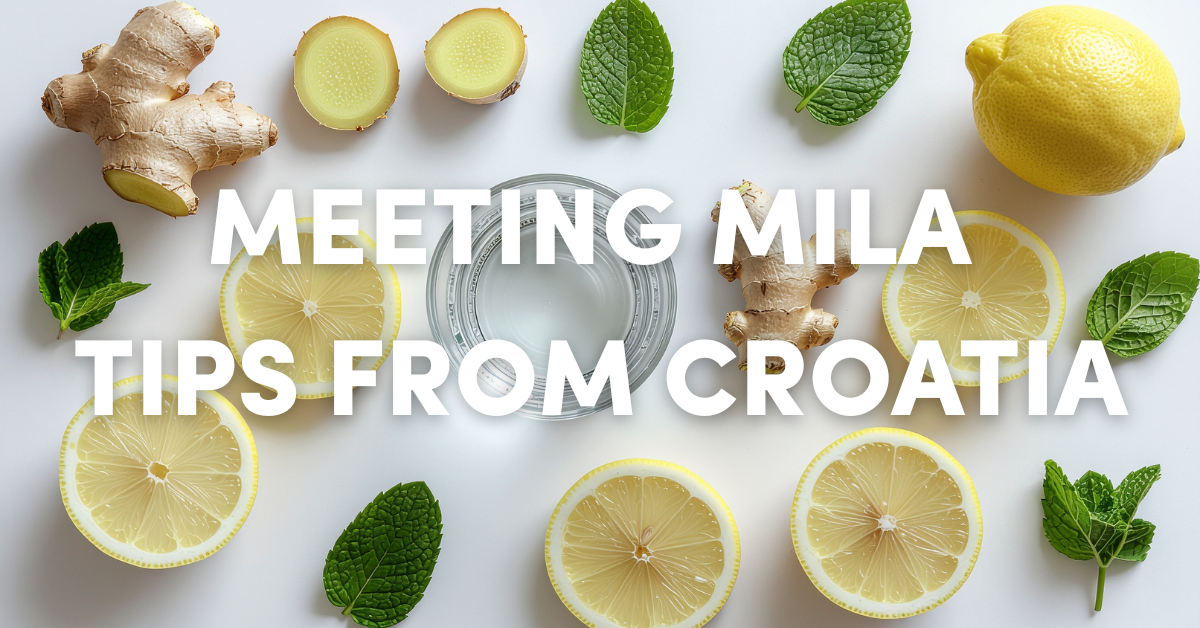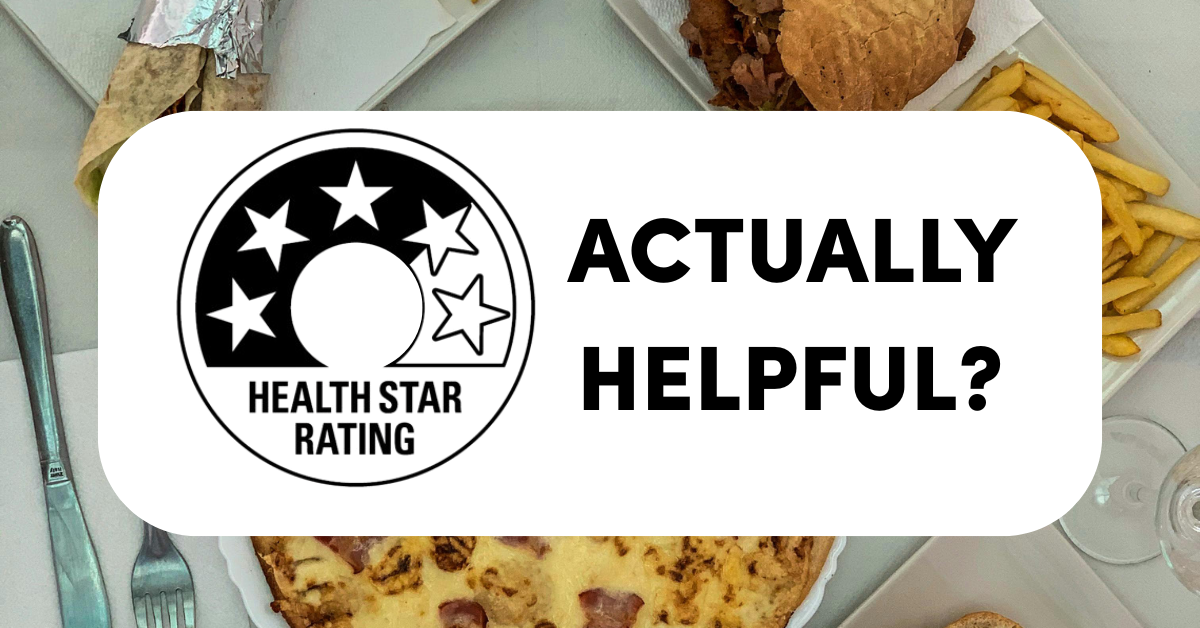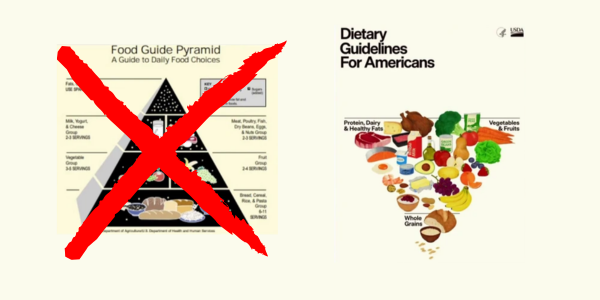



I’ve been in the nutrition world far too long to see a new supplement trend on TikTok and become a best seller not to be a little suspicious as to its ability to do all the things claimed.
I also wonder how the demand for this nutrient can be maintained worldwide. Is it an extract, or is it being made using synthetic biology (Crispr technology)? A far more efficient system. And am I prepared to be swept up in the hype?
Mechanism vs Holism/Vitalism
When it comes to preventative health care, I’m a vitalist not a mechanist. In the case of emergency care, the knowledge of mechanism comes up trump, but when it comes to prevention, maintaining and finding health, the philosophy of vitalism never seems to fail. I know that supplements can be part of both pictures.
There is no one panacea vitamin or nutrient for good health – it takes a lifestyle change. Using organic real food, clean water, connection, sunshine, quality air, sleep and appropriate movement.
Food is my mantra, not supplements – so let’s talk about one of the latest that’s trending.
Is glutamine a good supplement?
Glutamine is the most plentiful amino acid (part of a protein chain) in the body. It’s known as a conditional amino acid, which means your body can make it, but it likes to get a supply from the food you consume. Foods that are high in glutamine include beef, eggs, tofu, milk, bone broth, spirulina, Chinese cabbage, cottage cheese, asparagus, venison, wild caught fish, turkey, corn and rice, in other words, glutamine is across the animal and plant kingdoms.
Glutamine participates in the formation of purine and pyrimidine nucleotides, amino sugars, glutathione, glutamate and other amino acids as well as protein synthesis, wound healing, glucose production, is an important fuel for the immune system, the brain and gut mucosal cells, and it is at the heart of controlling pH balance in the body. It is unlike other amino acids in that it is not stable in a solution and depends on temperature, pH and holding time for stability.
The supplementation of glutamine has proven to be very effective in burns and wound victims, severely compromised immune systems and healing after major surgery or physical trauma. It’s also been used to alleviate the effects of chemotherapy. Glutamine production by the body is disturbed with alcohol consumption. Once alcohol is out of the system, the body produces glutamine again. Glutamine has also been used to help people with sickle cell anemia since the 1950’s.
It has its place in healing and trauma. No doubt about it, but the question is should we all be taking it daily, and is it the almighty panacea for health?
Glutathione, another trendy nutrient, is made by the body by using glutamine, glycine and cysteine. Glutathione is a powerful antioxidant in the body, it also plays a key role in metabolism of toxins, creation and repair of DNA, production of protein and prostaglandins, activation of enzymes, and is part of immune responses. To make glutathione you must have the three amino acids present along with other enzymes and co-enzymes (glutamine (our topic of conversation), cysteine and glycine). I know there are a lot of ‘g’ words.
If there is a limited amino acid then the production of glutathione will be limited. Let me explain with a passion of mine; Glyphosate (the herbicide used on many food crops) takes the place of glycine in the amino acid chain in plants and animals and if it does this, then glycine could be the limiting amino acid, not glutamine. In other words, you could have as much glutamine as you want but will be limited in making glutathione due to the lack of glycine as a result of modern agricultural chemicals. So what does this mean? We have to look at the big picture, not just one nutrient.
Why all of a sudden do we need more glutamine?
When I did biochemistry through university (and continue to study it today) it fascinated me how innately intelligent our bodies are, that they can run all these biochemical pathways. But without the proper ingredients, it is limited in its ability. For humans to survive to this point in time food and lifestyle is what allowed the innate intelligence of the body to be at its healthiest. But industrial agriculture, proliferation of man-made health disrupting chemicals in every area of our life and food processing, has depleted our foods of good nutrition. So, the answer has been to supplement rather than look at the root cause of the issue in the first place, thereby not needing to take dubiously made and manufactured supplements.
Are manufactured supplements safe?
We are playing with fire when we supplement with synthetic nutrients on a daily basis. For example, let’s take what we know about Vitamin C. Ascorbic Acid is the outer shell of the whole food Vitamin C complex. I heard someone describe whole food Vitamin C like a vehicle. The ascorbic acid is the frame, the wheels contain copper and the engine is the enzyme tyrosinase. Tyrosinase initiates the oxidation of the amino acid tyrosine into melanin (skin pigmentation). Whole food vitamin C includes rutin, bioflavonoids, choline, P factor, J factor, K factor and ascorbinogen. Each one of these elements has a part to play in vitamin C being utilized by the body the way it should be. This is why we recommend products like the ones available at Changing Habits, where they sell a whole food Nature’s Vitamin C made from 100% Camu Camu, rather than ascorbic acid.
The discoverer of Vitamin C, Dr Albert Szent-Georgi, Nobel Prize Laureate said “Ascorbic Acid simply cannot confer vitamin activity”. Vitamin C is not only for immune support and connective tissue but provides the substrate on which we are able to create cellular energy – ATP. Your health depends on a steady flow of this energy unit. Without it death is imminent.
Remember that in nature just like ascorbic acid, glutamine is never found in isolation it is in a whole flood with other amino acids, fats, sugars and phytonutrients which all work symbiotically together to nourish and keep us healthy.
How are supplements made?
How is the majority of glutamine made for the supplement and medicinal market?
As always, I go to the patents to find out how this is done. Back in the 1950’s before genetic modification of microbes and fermentation, glutamine was made in a chemical laboratory using starters, reagents and solvents, but now it is made using a genetically modified microbe on a sugar medium which could be genetically modified sugar beet. The microbe is coryneform bacterium that has been genetically modified using Crispr technology to enhance its intracellular glutamine synthetase (enzyme) activity to produce copious amounts of l-glutamine for a burgeoning supplement and industrial market. The genetically modified microbe is called Corynebacterium glutamicum.
Corynebacterium glutamicum is an industrial microbe traditionally used for the production of amino acids. It was first discovered in producing glutamate. Now it is used to make amino acids, such as lysine, threonine, isoleucine, as well as vitamins like pantothenate (vitamin B5). So, when you see these supplements, it’s most likely that they are made using synthetic biology (see my article on this here).
Corynebacterium glutamicum holds the potential to be upgraded into one of the most successful industrial microorganisms in the world when the modern disciplines and technologies (synthetic biology, CRISPR genomic editing,) are applied in a combinatorial and advanced fashion.
This is where I have a problem.
When we genetically modify microbes like bacteria, fungi, virus’s and moulds, we are playing with a significant part of nature and if these microbes escape from the laboratories, what are the consequences? We have already seen the consequence of one leak over the past 2 years. I don’t think we really know nor do I believe anyone knows, but in my mind I’m not prepared to support this unknown element of science and genetic engineering.
Glutamine is being touted as the new wonder supplement, but I wonder whether it’s not that we need more glutamine but rather to be more mindful of where we source our food and how we live our lives.
Avoiding lifestyles and foods that ruin the immune system and digestive system – read my book Lab to Table to learn what these are and know how to source foods from ethical sources and tend to the body’s innate immune system by living the principles of a healthy lifestyle. Having this understanding shortcuts the need for these white-powdered synthetic supplements made through dubious means that in the end will not be supportive of your health or the planets.
If you are in a critical condition and this is what you need to survive by all means this is when modern medicine shines, but for your day-to-day nutrition and health, seek out the principles of healthy eating as taught by Changing Habits and The Nutrition Academy.
How to get glutamine naturally
To make sure I get all my needs for glutamine I do the following;
Supplements become bestsellers because we no longer do what we need to do to be healthy, so we look for the quick fix, but that quick fix is just a bandaid that will eventually fester and get worse. Put the work in now to reap the benefits not only now but in the future and for your future generations.
Cyndi O’Meara
Further reading on CRISPR technology and genetic engineering of Corynebacterium glutamicum to make glutamine.
Abstract https://patents.google.com/patent/US7262035B2/en



Head on over to YouTube to see our longer form videos.
↳ follow the link in our bio

Can you believe it`s as simple as getting out into the sun, breathing fresh air, drinking clean, filtered water and eating natural foods? Forget pills, rigid routines, hour-long HIIT sessions, and bingeing superfoods. Just follow the fundamentals for good health.

Finished your meal but still hungry? Give leptin thirty minutes to work its magic before you decide to keep eating.

Has The Nutrition Academy changed your health? Tell us about it below!

Reach out to us via email admin@thenutrition.academy, give us a call 0421977604, or shoot us a DM if you`re interested in learning more about The Nutrition Academy.

Watch the full video of Cyndi creating sauerkraut on our YouTube channel! Head over there now!
↳ follow the link in our bio

The polyphenols found in delicious vegetation like berries, peppercorns, cocoa powder and olives, boost the antioxidant enzymes in your body, calming inflammation, supporting blood vessel function, and feeding beneficial gut bacteria. It may surprise you that we eat a compound which is meant to `deter` pests, but humans love to eat anything sour or bitter.

Sometimes, we can`t help what life throws at us, but we can take strength in reacting proactively and making decisions that align with our values no matter what, ensuring we reach a desired outcome. When was a time you were proud of yourself for adjusting your sail and keeping moving? Let us know below!

Come back on Thursday to watch Cyndi make sauerkraut and show you just how easy it really is.

Our course is not like others you see online. It`s written by a well-respected biomedical scientist professor at the University of Tasmania and packed full of information from varying sources to educate you on a huge range of topics. To learn more, read about it on our website!
↳ follow the link in our bio

If you`ve ever turned to the internet for health advice and found yourself overwhelmed and bombed with contradictory advice that wouldn`t work for you in practice, turn off the noise. There`s a flexible, realistic and life-changing option for you.
Learn about being a locavore and get the opportunity to study more about ancestral eating, human anthropology and nutrition science with Cyndi O`Meara. Join us on Monday 23rd at 7:00pm AEST. Sign up here: https://us02web.zoom.us/meeting/register/v16VmuY1SSekNyO5btTbdA

Do you have Doctor Merriment, Dr Sleep and Dr Diet in your life?
